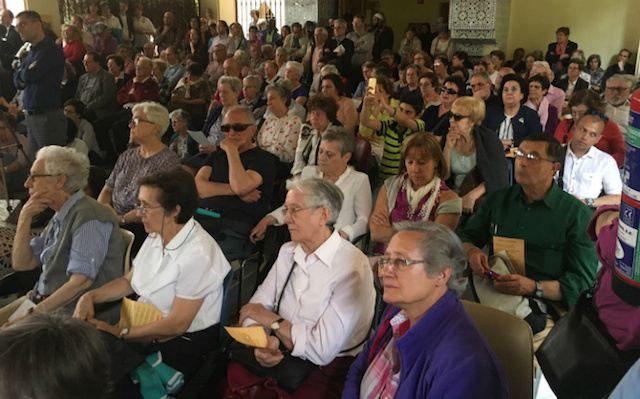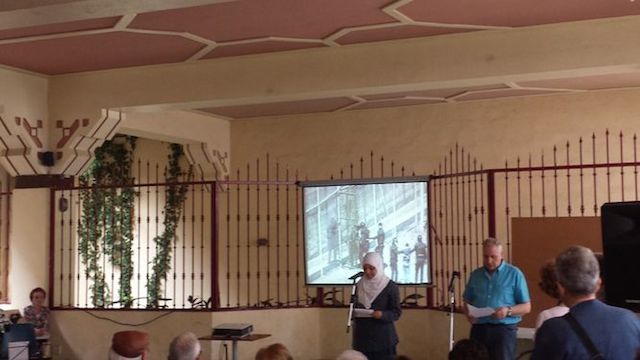Las condenas al cardenal, muestras de grandes problemas con el principio de justicia abierta
El verdadero culpable del 'caso Pell': un sistema legal australiano totalmente podrido
A spirit of solidarity and harmony permeated the patio of the Madrid central mosque last night as hundreds of people filled the space to reflect on the “crisis of solidarity” with refugees that has taken hold in Europe and to meditate on how the different religions present in Madrid can contribute to the construction of a more tolerant, compassionate, and benevolent society.

The function began with an orientation to the heart-wrenching realities of the refugee drama, continued with poignant testimonies of different religious believers to this cruel state of affairs, and ended with a two-part commitment by those present—the singing of a hymn and the reading of a manifesto—to work on behalf of these desperate and suffering asylum seekers. Each of the brief discourses offered by the invited representatives of their faith communities—which included those of Islam, Roman Catholicism, Judaism, Eastern Orthodoxy, Evangelicalism, Baha’ism, Buddhism, and the Society for Krishna Consciousness—were punctuated by musical interludes from Hamza Castro, a master of the Persian flute, and by singers from the central mosque and the Baha’i community.
Despite the differences of faith and belief between the different presenters and attendees of the event, there were commonalities of thought and opinion that came up again and again. If “religion”, broadly understood, teaches us that human life is sacred, then the current responses of the different governments of the European Union to the ongoing refugee crisis can hardly be thought of as sufficient, from a religious perspective. In this sense, the different leaders of their various faith traditions called both for the EU to reconsider its policy of returning asylum seekers to Turkey—a country that, despite the rhetoric, could hardly be regarded as “safe”—and for Spain to take in more than the mere 124 refugees it has accepted to date. The words of Fr. José Luis Segovia, of the Pastoral Commission of the Roman Catholic Archdiocese of Madrid, were typically moving in this respect: “We want [the different governments of the EU] to look into the eyes of those who seek asylum.”

Despite the lamentable, cold-hearted inaction of politicians on the refugee issue, religious believers have much to offer society in terms of the mercy, compassion, and benevolence in which they believe, according to the participants of the interfaith event. Even if the different faith traditions of the world have been mired in conflicts in the past—and this fact was movingly recognised in the “Mea culpa of the religions” intoned at the function—their different sacred texts and prophetic voices are important resources that should be drawn upon to combat the violent fundamentalisms, nationalisms, and other prejudices that have caused, and exacerbated, the refugee crisis. In this sense, perhaps the most thought-provoking experiences of the interreligious evening were the musical recesses provided by the flute maestro Hamza Castro. Believers of all religious traditions can identify with the figure of the dervish, explained Castro. All are called to become like this Muslim pilgrim and mystic who, wherever he or she goes as moved by his or her faith, tries to improve the material conditions of life in that place.
También te puede interesar
Las condenas al cardenal, muestras de grandes problemas con el principio de justicia abierta
El verdadero culpable del 'caso Pell': un sistema legal australiano totalmente podrido
Diccionario de palabras claves para un verdadero respeto (VI)
Capitalismo y explotación
Diccionario de palabras claves para un verdadero respeto (V)
"La sociedad cisheteronormativa proporciona ventajas a las personas heterosexuales sin que ellas se den cuenta"
Diccionario de palabras claves para un verdadero respeto (IV)
"La masculinidad es dominante, omnipresente e inextricablemente ligada al poder y al control"
Lo último